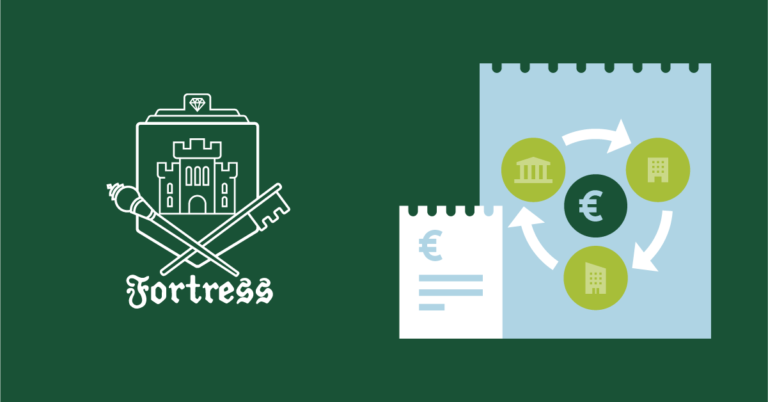Lithuania’s financial technologies (FinTech) sector is rapidly gaining momentum, following the government’s decision earlier this year to transform the country into a hub for FinTech companies. More and more companies from across the globe are setting up in Lithuania, with many more awaiting approval from the Bank of Lithuania. And these companies clearly like what they see.
Thanks to its forward-thinking regulatory framework and competitive business conditions, many globally-oriented FinTech firms have established, or are in the process of establishing, operations in Lithuania. These include UK-based FinTech start-up Revolut, International Business Settlement, a Chinese international settlements giant, and Moneta International, a payment platform developer backed by Israeli investors.
And, with Lithuanian government institutions joining forces to transform the country into a European FinTech hub, these companies are just the first of many.
For Marius Jurgilas, Member of the Board of the Bank of Lithuania, the Fintech sector represents a golden opportunity for Lithuania as the global financial services industry evolves. “There is a sea change in the global market,” he explains, “as small non-bank institutions are actively finding their way alongside well-established financial institutions. The Bank of Lithuania, the public agency Invest Lithuania and the Ministry of Finance, are all combining our efforts. That’s because we see an opportunity for Lithuania to get a slice of this global market. Together, we are following a systematic strategy to attract as many FinTech companies to Lithuania as possible,” states Mr Jurgilas.
He believes that Lithuania will benefit not only from job creation, but also from becoming a focal point for entrepreneurial, IT and programming talent.
One key reason for targeting FinTech companies, according to representatives from the Bank of Lithuania, is the fact they’re not bound by their physical location, and are able to provide services to many markets. That said, they also stress that the companies coming into Lithuania will not just be creating products for export, but will also be providing their services in Lithuania, creating competition in the financial services market and bringing added-value for consumers.
“We don’t anticipate the biggest players in the global banking industry coming to Lithuania. On the other hand, FinTech companies, which are relatively small, but are creating innovative products and services, we expect in great numbers,” says Mr Jurgilas.
From Britain to the Philippines
In terms of attracting FinTech companies from abroad, one country of particular interest at the moment is the UK. Following the referendum vote to leave the EU, it is believed that many companies in the sector may be considering relocation to other countries inside the EU. Last week, the opportunities Lithuania has to offer for FinTech companies were presented at a conference in Cambridge. And in early December a team from the Bank of Lithuania and other institutions will be in London to pitch Lithuania as a location for FinTech.
“It is difficult to give a precise estimate of the number of companies who will set up in Lithuania in the near future,” comments Mr Jurgilas. “But I can reveal that we are already getting strong expressions of interest from companies based in a wide range of countries, from the UK, Estonia, Latvia, and Germany, through to Israel, Singapore and the Philippines. We are particularly interested in Asia, because in some parts of this region the whole financial industry is now based on financial technologies rather than traditional banking. In Europe, we are just approaching a turning point in the industry,” says Mr Jurgilas.
According to data provided by the Bank of Lithuania, there are currently five companies applying for licences as electronic money institutions and two for licences as payment institutions. Additionally, there has been interest in specialised bank licences, which will be available in 2017, when new legislation regulating specialised bank licences will come into effect.
A pool of specialists fluent in English
Moneta International’s Chairman of the Board, Eyal Nachum, explains that the company looked at six potential locations, including Latvia, the Czech Republic, Poland and the UK, before deciding to invest in Lithuania.
“During our visits we met representatives of the institutions supervising the financial markets,” he says. “We needed very specific answers. Some did not want us to establish a business in their countries. And when asked why, they answered that they simply did not like us.” But Lithuania was different. “We didn’t experience this attitude here in Lithuania: neither from the Bank of Lithuania, nor from Invest Lithuania. On the contrary, they supported our intentions. Thus, we decided to invest here,” he concludes.
The asset Lithuania has which is truly priceless, he believes, is its pool of specialists fluent in English. “Look at any big European country and there is a shortage of English speaking people. I’ve just visited Madrid – no one speaks foreign languages there. It’s the same in Poland and France,” says Mr Nachum.
Moneta will operate two offices in Lithuania. The headquarters of the company will be in the capital, Vilnius, while its R&D and training centre will be based in Kaunas, Lithuania’s second city.
“We chose Kaunas because there are many universities and many potential employees. And we don’t expect any recruitment issues in Vilnius. We won’t be looking for average employees, but for ‘crazy’ ones: people who are creative, artistic, people with tattoos, musicians. Only people like this have ideas, and enough enthusiasm to implement them,” believes Mr Nachum.
The company has already announced its intention to invest more than €1 million into its Lithuania operations, and will create around 15 new jobs. Moneta International is developing a platform that is mostly aimed at helping e-commerce companies to handle their money orders and payments, and manage funds.
“Banks and other payment service providers are both our main competitors and our main partners. There is no need to hide the fact that some of them don’t like us much. Our system acts as an intermediary between e-commerce companies and banks. All of a company’s incoming and outgoing funds can be managed through our system. It also helps to reduce the chance of faulty transfers while cutting transfer time by a third,” explains Mr Nachum.
Source: Verslo žinios















